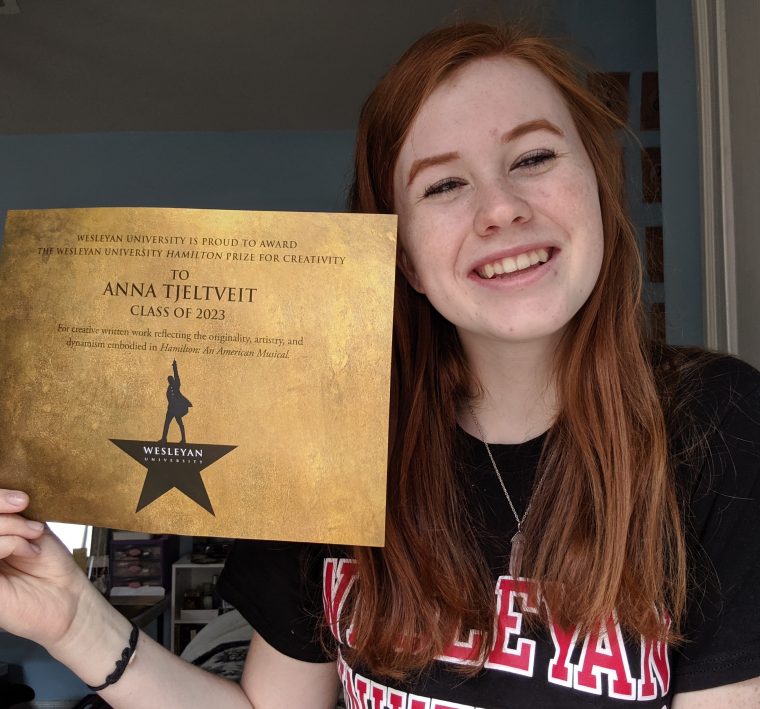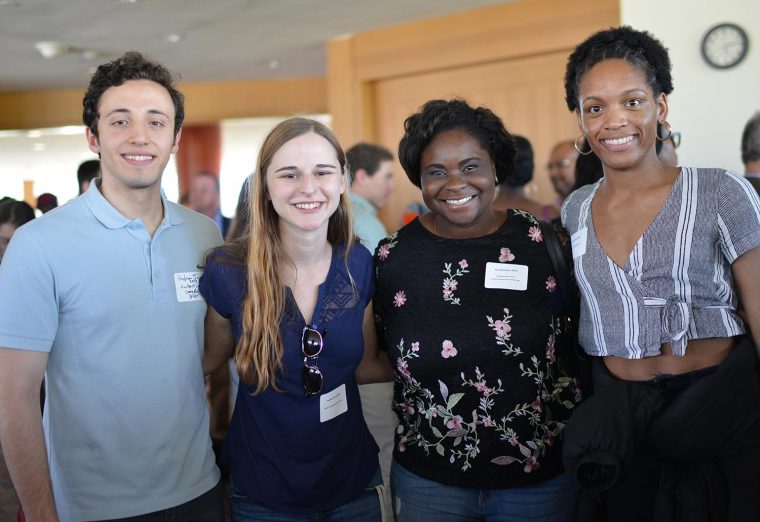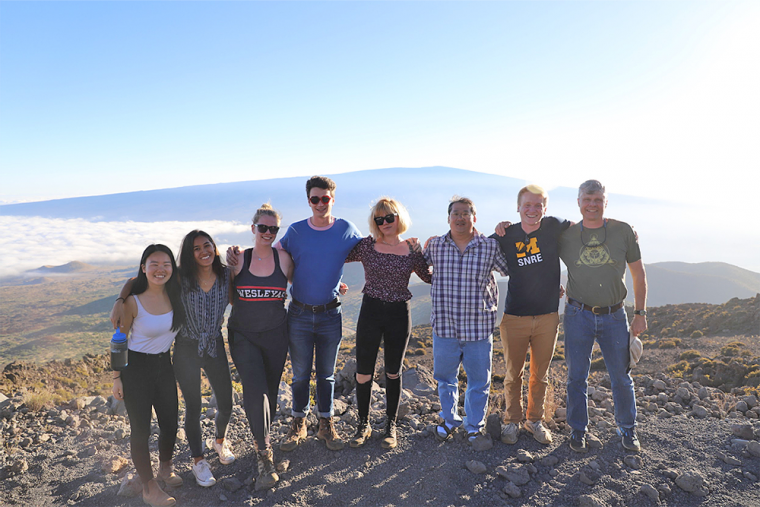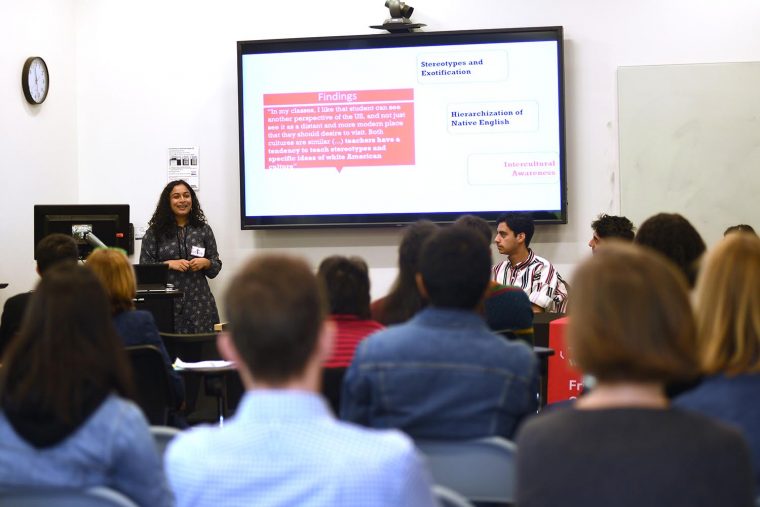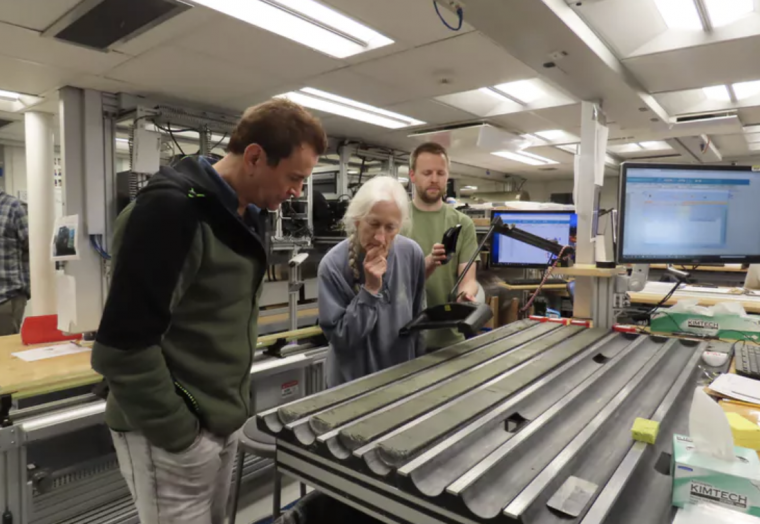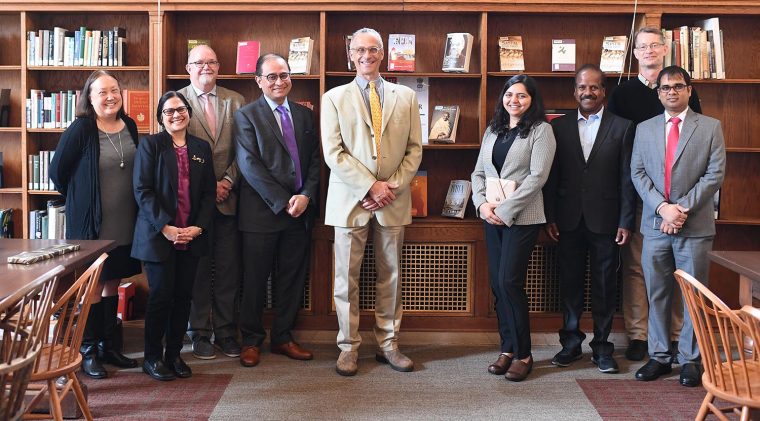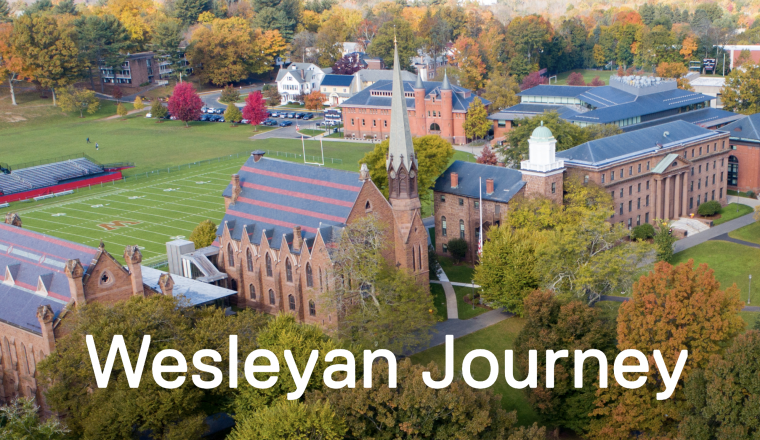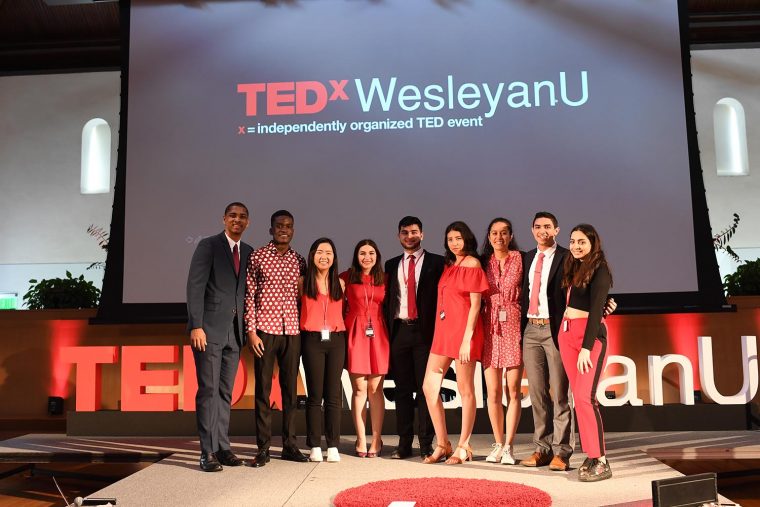Wesleyan has awarded its prestigious Hamilton Prize for Creativity to three students whose creative written works best reflect the originality, artistry, and dynamism of Hamilton: An American Musical, created by Lin-Manuel Miranda ’02, Hon. ’15 and directed by Thomas Kail ’99. Anna Tjeltveit of William Allen High School in Allentown, Penn., was awarded the grand prize—a four-year, full-tuition scholarship to attend Wesleyan—for her one-act play titled “Five Steps.” In addition, this year for the first time, Wesleyan awarded two honorable mentions along with $5,000 stipends. These went to Cole Goco of Arlington, Va., (H-B Woodlawn High School) for his web…
On May 8, the Office of Student Affairs hosted a reception honoring students who received academic or leadership prizes, fellowships, and scholarships in 2018–19. More than 315 students and recent alumni received one of the University's 180 prizes. (View the list below or on the Student Affairs website.) Scholarships, fellowships, and leadership prizes are granted to students and student organizations based on criteria established for each prize or award. Certain University prizes are administered by the Student Affairs/Deans’ Office, while others are administered by the Office of Student Activities and Leadership Development (SALD). (more…)
In this recurring feature in The Wesleyan Connection, we highlight some of the latest news stories about Wesleyan and our alumni. Wesleyan in the News Inside Higher Ed: "The Need for a Recovery of the Humanities" In this essay, President Michael S. Roth responds to the "flood of negativity" in public discourse about higher education, in general, and the humanities, in particular. He suggests that "in order to recover the trust of students and their families, we must overcome our cultivated insularity." 2. NBC News: "Carbon Dioxide Hits a Level Not Seen for 3 Million Years. Here's What That Means for…
Shayna Beaumont ’19, an environmental studies and Hispanic literatures and cultures double major from New York, has been selected as a finalist in Map the System, a global competition that asks participants to research the ecosystem of an issue they care about. Her project, “Food Justice as a Platform for Environmental Equality in Harlem” tackles the issue of food deserts in the neighborhoods of East and Central Harlem in New York City. "All my life I’ve grown up in food deserts where the unhealthy fast food chains and liquor stores are advertised, instead of healthy eating," she said in a Coexistdaily blog.…
Six students majoring in earth and environmental sciences who said "aloha" to Hawai'i in January have completed their senior capstone project. Seniors Jackie Buskop, John Sheffer, Kelly Lam, Sara Wallace-Lee, Ryan Nelson, and Celeste Smith traveled to the Big Island of Hawai'i Jan. 8-15 to conduct original, field-based research projects. They were accompanied by Associate Professors of Earth and Environmental Sciences Tim Ku and Phil Resor. Prior to the trip, all six students enrolled in the fall semester course Senior Seminar E&ES 497, where they used the primary scientific literature to create hypothesis-driven research proposals. After collecting data in Hawai'i, the students enrolled…
More than 110 Wesleyan students, faculty, alumni, and local guests participated in the second annual Power of Language Conference, April 26-27 at the Fries Center for Global Studies. The event was open to the entire Wesleyan community. The two-day event featured six panels that focused on: Creative Language Learning, Crossing Time and Border through Translation, Language and Society, Language in Curriculum, Arabic in the U.S., and Polyphony through Literature. "The presentations ranged from class final projects (such as a comic version of Dante’s Inferno, reimagined at Wesleyan) to senior theses (such as the challenges of translating early modern Spanish into…
Meera Joshi ’20 is the recipient of an American Society for Biochemistry and Molecular Biology (ASBMB) Undergraduate Research Award for her work on the DNA mismatch repair system. The $1,000 award will support her research titled "Exploring the Dynamics of Msh2-Msh6 Binding to Holliday Junction Through ATPase Activity. Her advisor is Ishita Mukerji, professor of molecular biology and biochemistry. Joshi's research focuses on a DNA mismatch repair protein called Msh2-Msh6 that initiates the repair of DNA mismatches after replication in eukaryotes. This is a highly conserved process from bacteria to humans and has implications for human health. "We are particularly interested in…
Wesleyan faculty frequently publish articles based on their scholarship in The Conversation US, a nonprofit news organization with the tagline, “Academic rigor, journalistic flair.” In a new article, Professor of Earth and Environmental Sciences Suzanne O'Connell writes about her work on board the JOIDES Resolution research vessel in the Scotia Sea, drilling for sediment core samples to study how much and how fast the Antarctic ice sheets melted between 2.5 to 4 million years ago, the last time atmospheric CO2 was at the same level as today. (Read more about O'Connell's experience in this AAAS article.) 60 days in Iceberg Alley, drilling…
Wesleyan's Olin Library is now home to a collection of 33 titles donated by the Consulate General of India, New York. On May 1, Consul Sandeep Chakravorty visited campus and participated in a formal dedication of the "India Corner." Housed in the Smith Reading Room, these volumes, representing India’s rich history and culture, and covering the country’s linguistic and geographical diversity, join the library's other robust holdings in Indian history, culture, and politics as well as Wesleyan’s rich heritage in Indian music, dance, and theater. Among the donations are Introduction to the Constitution of India by Durga Das Basu; Sufi Lyrics by…
Nate Gillman ’20, a computer science and mathematics double major from Maryland, is the recipient of a 2019 Barry Goldwater Scholarship. He's one of 496 college students in the country to receive the award. The Goldwater Scholarship is awarded to sophomores and juniors who show exceptional promise of becoming the next generation of research leaders in the fields of mathematics, natural sciences, and engineering. The scholarship provides up to $7,500 a year to help cover costs associated with undergraduate tuition, mandatory fees, books, and room and board. Gillman knew he wanted to study math—specifically analytic number theory—after enrolling in a calculus…
Wesleyan students and alumni impact the world in so many ways. As you explore the journeys we’re sharing this spring and reflect on your own, we hope you’re inspired to help the next generation of Cardinals take flight. View the journeys of Charles Bonar ’19 and Jessica Chukwu '11 online here.
On April 27, seven prominent thought leaders including Wesleyan alumni, two medical doctors, and local politicians shared their ideas during the second annual TEDxWesleyanU Conference held in Beckham Hall. In the spirit of ideas worth spreading, TEDx is a program of local, self-organized events that bring people together to share a TED-like experience. (more…)


